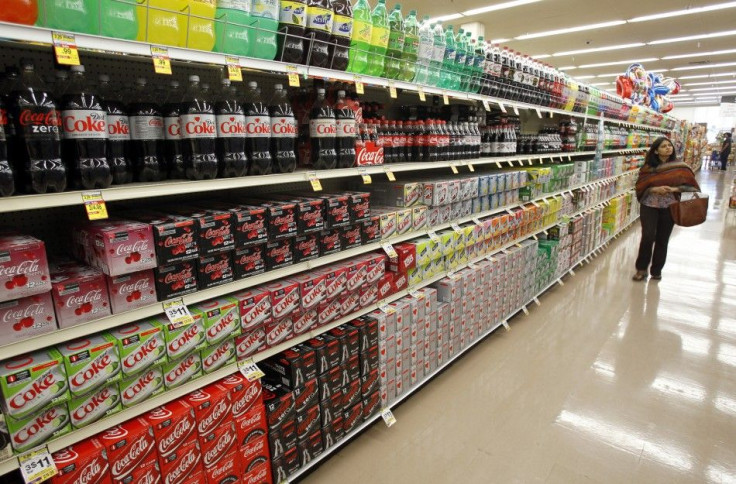Soda May Be Making Your Kid Aggressive: New Study Associates Soft Drinks With Behavior Problems

A new study is associating soda consumption in young children with a litany of behavioral problems. In the study, even one soda of serving was associated with an increase in aggressive behavior while young children consuming four or more servings daily had an increase in aggressive behavior, attention problems and symptoms of withdrawal.
The study, led by researchers from Columbia University's Mailman School of Public Health, University of Vermont, and Harvard School of Public Health, was published in the Journal of Pediatrics. The study involved 3,000 5-year-old children and mothers filled out surveys detailing their child’s soda consumption and reporting their child’s behavior, using the Child Behavior Checklist, in the past two months. Based on the surveys, 43 percent of children consumed one serving of soda per day while 4 percent of children drank four or more servings.
Compared to children that did not drink soda, the children who consumed one serving of soda had an increase in aggressive behavior. Children consuming four or more servings had a sharp increase in aggressive behavior, with researchers reporting the children were prone to bouts of violence that included destroying toys and other belongings, attacking other children and getting into fights. The heavy soda drinkers were also more prone to other behavioral problems including attention problems and withdrawal.
The researchers adjusted their findings to eliminate factors including maternal depression, intimate partner violence, and paternal incarceration as well as sociodemographic factors, be it age, socioeconomic status or education, and soda consumption was still associated with behavioral problems. The researchers also factored for candy consumption and sweet drink intake, such as fruit juice.
According to Shakira Suglia, from Columbia University’s Mailman School of Public Health, “We found that the child's aggressive behavior score increased with every increase in soft drinks servings per day.” The researchers did not define a possible mechanism for the increase in aggression. According to the researchers soda is a processed mess of ingredients that may increase behavioral. The study states, “Soft drinks are highly processed products containing carbonated water, high-fructose corn syrup, aspartame, sodium benzoate, phosphoric or citric acid, and often caffeine, any of which might affect behavior.”
The researchers note the effect of these ingredients on a child’s behavior has not been thoroughly studied. Caffeine has been associated with behavioral problems in teens, so that could be a possible cause while soda consumption could affect blood glucose levels which could trigger aggressive behavior.
© Copyright IBTimes 2025. All rights reserved.






















